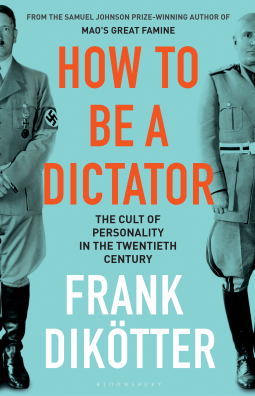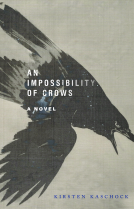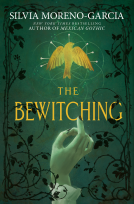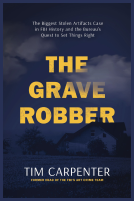
How to Be a Dictator
The Cult of Personality in the Twentieth Century
by Frank Dikötter
This title was previously available on NetGalley and is now archived.
Send NetGalley books directly to your Kindle or Kindle app
1
To read on a Kindle or Kindle app, please add kindle@netgalley.com as an approved email address to receive files in your Amazon account. Click here for step-by-step instructions.
2
Also find your Kindle email address within your Amazon account, and enter it here.
Pub Date Sep 05 2019 | Archive Date Sep 05 2019
Bloomsbury Publishing Plc (UK & ANZ) | Bloomsbury Publishing
Talking about this book? Use #HowToBeAdictator #NetGalley. More hashtag tips!
Description
From the Samuel Johnson prize-winning author of Mao's Great Famine, a timely and compelling exploration of the cult of personality that surrounded eight twentieth century dictators
Mussolini, Hitler, Stalin, Mao Zedong, Kim Il-sung, Ceausescu, Mengistu of Ethiopia and Duvalier of Haiti.
No dictator can rule through fear and violence alone. Naked power can be grabbed and held temporarily, but it never suffices in the long term. A tyrant who can compel his own people to acclaim him will last longer. The paradox of the modern dictator is that he must create the illusion of popular support. Throughout the twentieth century, hundreds of millions of people were condemned to enthusiasm, obliged to hail their leaders even as they were herded down the road to serfdom.
In How to Be a Dictator, Frank Dikötter returns to eight of the most chillingly effective personality cults of the twentieth century. From carefully choreographed parades to the deliberate cultivation of a shroud of mystery through iron censorship, these dictators ceaselessly worked on their own image and encouraged the population at large to glorify them. At a time when democracy is in retreat, are we seeing a revival of the same techniques among some of today’s world leaders?
This timely study, told with great narrative verve, examines how a cult takes hold, grows, and sustains itself. It places the cult of personality where it belongs, at the very heart of tyranny.
Available Editions
| EDITION | Hardcover |
| ISBN | 9781408891629 |
| PRICE | £25.00 (GBP) |
Average rating from 14 members
Featured Reviews
 Georgiana D, Reviewer
Georgiana D, Reviewer
I’ve always found dictators to be a fascinating topic. This book focusses on eight of them: Mussolini, Hitler, Stalin, Mao, Kim, Duvalier (“Papa Doc), Ceausescu and Mengistu. I suspect that, like me, most readers will be more familiar with some of the names on that list than others. It was interesting both to get more info on the really notorious ones and to learn about some of their relatively obscure comparators. There’s also a good geographical range there, and it covers most of the twentieth century, making for a nice bit of variety, though as the author acknowledges, there are plenty more names that could have made the cut.
The central idea of the book is that “the cult of personality …belongs at the very heart of tyranny” (as opposed to being a sideshow). Each chapter gives some of the political and historical background to the relevant country and regime and touches on each dictator’s ideological views, political actions and evil deeds. However, the big focus is on their respective personality cults – the posters, parades, personal militias and myths, as well as the ways in which the population was requires to show proper adoration and punished for failure to do so. There’s a lot of interesting stuff in here. It’s a relatively easy read for such a dark and heavy topic, and I found myself reading out all sorts of random facts to my husband (eg. so many badges with Mao’s face were produced that it affected China’s ability to produce aircraft!)
On the one hand, it was fascinating to see the parallels in approaches between what were, on the face of it, very different dictators, politically and personality-wise. There are themes that come up again and again, like the populace blaming everyone else but the dictator for their troubles and swearing he’d stop examples of smallscale, localised corruption and brutality, if only he knew about it. At the same time, it’s interesting to see the way each dictators framed their message to work in their cultural context, whether that’s Mussolini bringing in Catholic aspects or Duvalier doing the same with Voodoo. That said, towards the end, my interest did start to wane slightly, as there were a lot of overlaps, plus the arguably more interesting (or at least, better known and bigger scale) characters were covered off earlier.
Overall though, I’d definitely recommend this to anyone with an interest in 20th century history, particularly those who are interested in the big players or cultural aspects. It was a nice combination of serious history/politics/biography, combined with readability and plenty of “share outloud” facts
This is a good, fairly short and easy introduction to some of the worst dictators of the twentieth century with a particular emphasis placed on how they built and maintained their own personality cults. From Mussolini to Mengistu, Diköter charts their rise to power, reigns of terror and ultimate falls (Mussolini, Hitler, Ceausecu, Mengistu) or continuation of the regime after their deaths (Stalin, Mao, Papa Doc Duvalier, Kim Il Sun). As the subtitle states, the book deals with the twentieth century dictators but in the afterword, Diköter does mention some of the contemporary dictators or rulers leaning towards personal dictatorships.
Diköter is very good on documenting the lives of each dictator, especially when it comes to dismantling opposition. I thought him excellent on detailing the ways in which each dictator sought ways to self-publicise. Fascinating to learn that both Ceausescu and Mengistu were so impressed with Kim Il Sun’s rebuilding of Pyongyang and sought to emulate him on return to Romania and Ethiopia. Ceausescu didn’t believe his own ambassador to North Korea that shops full of goods were only for show when foreign dignitaries visited. Same thing happened in Berlin during the 1936 Olympics (although Diköter doesn’t mention this) – the Nazis toned down anti-Semitism for the duration of the games, posters were removed but immediately put back up after the athletes left.
While I thought How to be a Dictator a good book, I did find it somewhat lacking in comparisons, common threads, analysis and conclusions. All of the dictators Diköter wrote about started off on the political fringes, some had very flimsy ideology (Hitler, Papa Doc, Mengistu, Mussolini), most lacked legitimacy and popular support. It would have been a better book, I think, if it had a final chapter or a conclusion detailing some of these common traits and, this would also have allowed Diköter to briefly bring in some of the other dictators he mentions in the preface, e.g. Assad father, Tito, Hoxha. But overall, it is a good introductory history.
My thanks to Bloomsbury and Netgalley for the opportunity to read and review How to be a Dictator.
 Librarian 431790
Librarian 431790
A well written and fascinating historical excursus on dictators in history.
It's well researched, well written, an easy and fast read.
I liked the style of writing and the clear explanations.
Highly recommended!
Many thanks to the publisher and Netgalley for this ARC, all opinions are mine.
 Ness C, Reviewer
Ness C, Reviewer
The blurb for this book asks:
“At a time when democracy is in retreat, are we seeing a revival of the same techniques among some of today’s world leaders?” Accordingly, I was excited to read this book in the hope of obtaining some insight into how we have ended up with the world leaders we see before us today.
Actually, the book goes down the opposite path to that in the blurb’s quote above, declaring: “Even a modicum of historical perspectiveIndicates that today dictatorship is on the decline.” I was then confused: how can there be a decline in democracy without a rise in autocracy (or dictatorship)?
The book goes through historical dictatorships in detail, following the rise of the relevant leader’s cult following. What I would then have liked is a link into world leaders’ tactics today and what we can learn from the nefarious methods used. In short, I felt the book could have gone further and more bravely into reviewing into today’s leaders in accordance with the Cult of Personality principles, particularly in light of the blurb.
This is a well-researched book on historical dictatorships and is an easy read. It’s also a quick read, as the final 20 percent of the novel is a detailed bibliography.
Many thanks to NetGalley, Bloomsbury Publishing and Frank Dikötter for an ARC of this book.


















